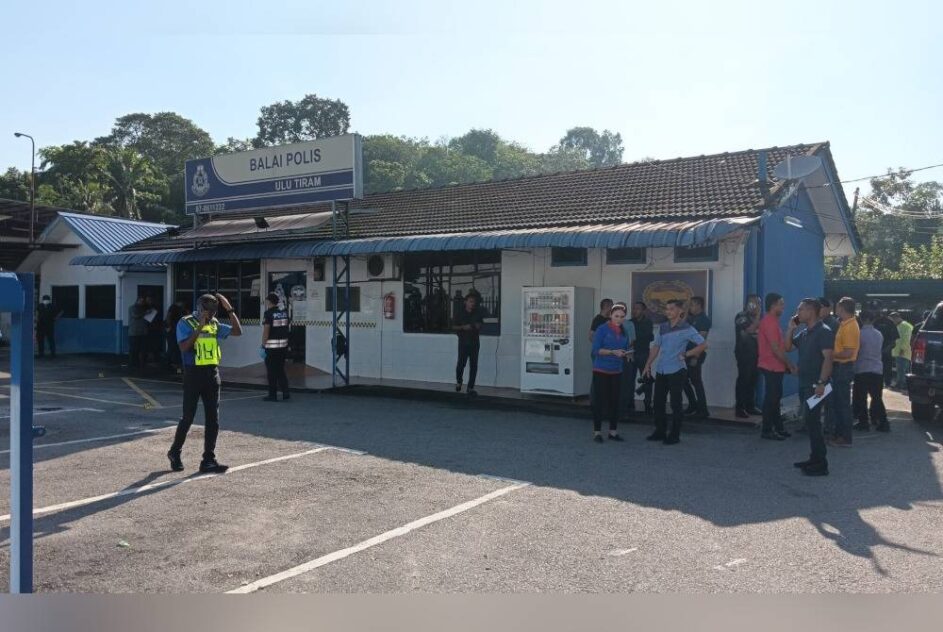AN unrelenting US coronavirus surge pushed hospitals further to their limits as the US pressed on with its immunisation roll-out on Thursday and prepared to ship nearly 6 million doses of a new vaccine on the cusp of winning regulatory approval.
COVID-19 hospitalisations rose to record heights for a 19th straight day with nearly 113,000 coronavirus patients in US medical facilities nationwide on Wednesday, while 3,580 more Americans perished, the most yet in a single day.
Another 232,255 US COVID-19 infections were reported on Wednesday, the second-highest daily US case load on record, driving the number of known US infections to more than 17 million since the pandemic began.
The highly contagious virus has claimed almost 308,000 lives in the US to date, the most in the world.
The staggering toll underscores the stakes involved as US regulators weighed whether to grant emergency use authorisation for a vaccine developed by Moderna Inc, a week after an earlier vaccine from Pfizer Inc and German partner BioNTech SE won consent for mass distribution.
The initial 2.9 million doses of the Pfizer/BioNTech vaccine began shipping on Sunday and were still making their way to hospitals across the country and into the arms of doctors, nurses, and other frontline medical professionals.
Some of the first shots were also going to residents and staff of long-term care facilities. Later vaccine rounds will go to other essential workers, senior citizens and people with chronic health conditions.
It will take several months before vaccines are widely available to the public on demand, and opinion polls have found many Americans hesitant about getting inoculated.
Some are distrustful of immunizsations in general, and some are wary of the unprecedented speed with which the first vaccines were developed and rolled out – 11 months from the first documented US cases of COVID-19.
Public health authorities have sought to reassure Americans that the COVID-19 vaccines are safe as well as highly effective at preventing illness.
‘Some are on the fence’
But ambivalence has emerged even among pockets of healthcare workers designated as first in line for inoculation.
“Some are on the fence. Some feel that we need to get it done. It’s split down the middle,” Diego Montes Lopez, 28, a phlebotomist at Martin Luther King Jr Community Hospital in South Los Angeles, said of co-workers after getting injected himself.
Public service messaging about vaccines has been mixed with urgent pleas for Americans to remain diligent about social distancing and mask-wearing until immunizations become widely available.
They point to data showing infections continuing to spread virtually unabated across much of the country, apparently fuelled by increased transmissions of the virus as many Americans disregarded warnings to avoid social gatherings and unnecessary travel over the Thanksgiving holiday last month.
California has been hit particularly hard in recent weeks with many of its hospitals reporting intensive care units (ICUs) at or near capacity, a dire situation that triggered a renewal of sweeping stay-at-home orders across much of the state.
Health experts have warned that when ICUs become overwhelmed, the death rate tends to rise.
With medical staff burnout said to be running high, the race to expand vaccinations is seen as critical to preventing a collapse of healthcare systems.
A panel of outside advisers to the US Food and Drug Administration overwhelmingly endorsed Moderna’s vaccine candidate for emergency use after a day-long meeting on Thursday. FDA authorisation could come as soon as Friday.
Health and Human Services Secretary Alex Azar told CNBC on Thursday that 5.9 million Moderna doses or enough to inoculate half that many people, had been allotted for state governments to distribute and were ready to ship nationwide.
“We’re ready to start shipping this weekend to them for rollout Monday, Tuesday, Wednesday of next week,” Azar said.
The Moderna vaccine has less onerous cold storage requirements than the Pfizer/BioNTech shot, making it a better option for remote and rural areas. Both were about 95% effective in preventing illness in pivotal clinical trials.
With millions of Americans thrown out of work due to state and local restrictions meant to contain the virus, Congress could soon lend a hand as well.
Top Republicans and Democrats on Capitol Hill on Thursday were closer than they have been in months to approving the first coronavirus economic relief since April, haggling over the details of a US$900 bil package.
The legislation was expected to include individual stimulus cheques of about US$600, extend unemployment benefits, funds for vaccine distribution and to assist struggling small businesses.
The additional relief cannot come soon enough as the US economy continued to suffer. Earlier on Thursday, data showed the number of Americans filing for jobless benefits for the first time unexpectedly rose last week as the pandemic further hobbled businesses. – Dec 18, 2020










